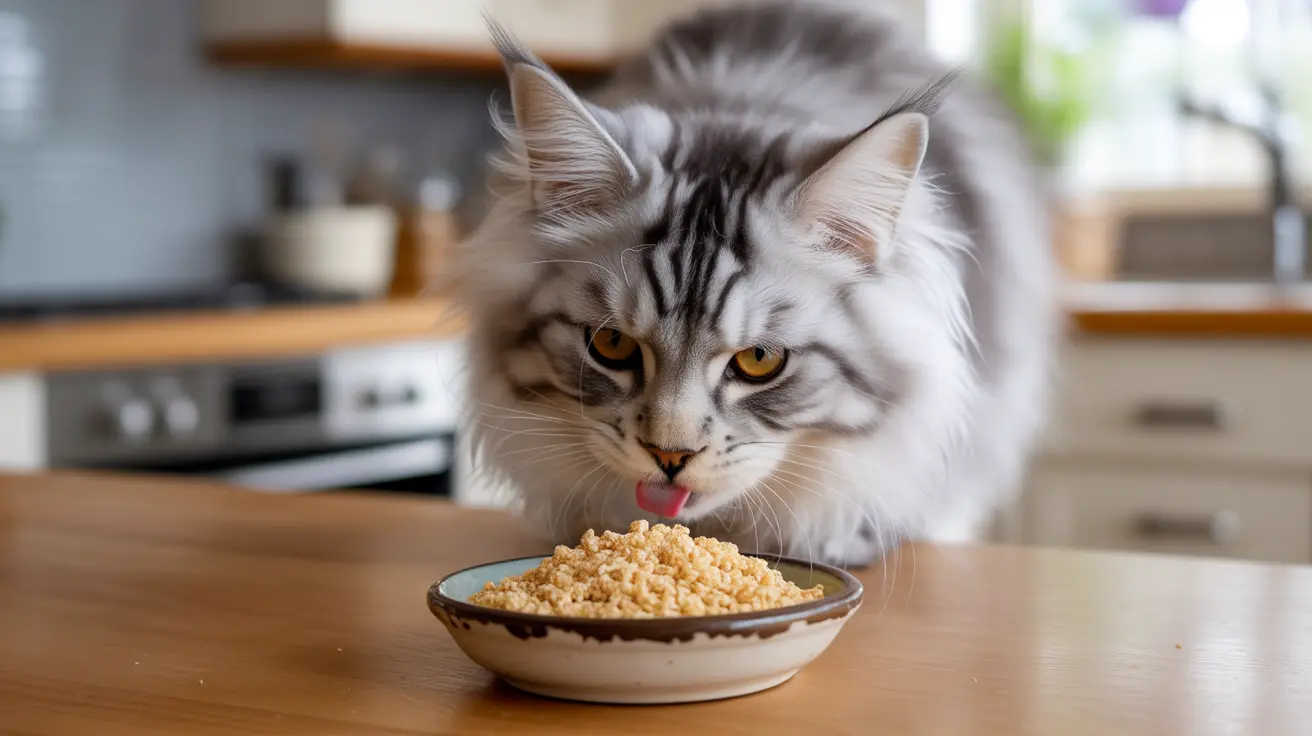If you're wondering whether cats can eat nutritional yeast, the answer is yes - but with some important considerations. This nutrient-rich supplement, popular among humans for its cheesy flavor and health benefits, can also be beneficial for felines when used correctly. Let's explore everything you need to know about feeding nutritional yeast to your cat safely.
What is Nutritional Yeast and Why Give It to Cats?
Nutritional yeast is a deactivated form of Saccharomyces cerevisiae yeast that's been specially processed to create a nutrient-dense food supplement. Unlike active yeasts used in baking, nutritional yeast won't ferment or cause dangerous bloating in your cat's digestive system.
This golden, flaky supplement is packed with essential nutrients including:
- Complete protein with all essential amino acids
- B-complex vitamins (including B12 in fortified varieties)
- Minerals like zinc and selenium
- Beta-glucans for immune support
Benefits of Nutritional Yeast for Cats
Enhanced Nutrition and Appetite
Many cats find the savory, cheese-like flavor of nutritional yeast irresistible. This makes it an excellent tool for:
- Encouraging picky eaters to consume their regular food
- Providing additional nutrients to cats recovering from illness
- Supporting overall health through B-vitamin supplementation
Improved Digestive Health
Research suggests that nutritional yeast can support your cat's digestive system by:
- Promoting beneficial gut bacteria growth
- Enhancing nutrient absorption
- Reducing harmful bacteria in the digestive tract
- Supporting regular bowel movements
Safe Feeding Guidelines
Proper Dosage
When introducing nutritional yeast to your cat's diet, start with small amounts:
- Begin with 1/4 teaspoon sprinkled over food
- Monitor your cat's reaction for 24-48 hours
- Gradually increase to no more than 1/2 teaspoon per day if well-tolerated
Choosing the Right Product
Select nutritional yeast that is:
- Plain and unflavored
- Free from additives and GMOs
- Specifically labeled as nutritional yeast (not brewer's or baker's yeast)
- Stored in a cool, dry place to maintain freshness
Potential Risks and Precautions
While nutritional yeast is generally safe for cats, there are some important considerations:
Watch for Allergies
Some cats may develop sensitivities to yeast products. Stop use and consult your veterinarian if you notice:
- Skin irritation or excessive itching
- Digestive upset
- Changes in behavior or energy levels
Medical Considerations
Cats with certain health conditions may need to avoid nutritional yeast:
- Those with kidney disease (due to phosphorus content)
- Cats with diagnosed yeast sensitivities
- Animals on certain medications or special diets
Frequently Asked Questions
Is nutritional yeast safe for my cat to eat, and how can I tell it apart from harmful baking yeast?
Nutritional yeast is safe for cats when used properly. You can identify it by its golden, flaky appearance and inactive state. Unlike baking yeast, it won't foam or rise when mixed with liquid. Always check the label to ensure you're purchasing nutritional yeast, not active yeast products.
What are the health benefits of adding nutritional yeast to my cat's diet?
Nutritional yeast provides B vitamins, complete protein, minerals, and immune-supporting compounds. It can improve appetite, support digestive health, and contribute to better skin and coat condition.
How much nutritional yeast can I safely give my cat without causing digestive or kidney problems?
Start with 1/4 teaspoon daily and don't exceed 1/2 teaspoon per day. Monitor your cat's response and consult your veterinarian, especially if your cat has kidney issues.
Can nutritional yeast help improve my cat's appetite or picky eating habits?
Yes, many cats are attracted to nutritional yeast's savory flavor, making it an effective tool for encouraging picky eaters to consume their regular food.
What signs should I watch for that indicate my cat might be allergic or sensitive to nutritional yeast?
Watch for signs such as vomiting, diarrhea, skin irritation, excessive scratching, or changes in behavior. If any of these occur, discontinue use and consult your veterinarian.
Conclusion
Nutritional yeast can be a healthy addition to your cat's diet when used properly. Start with small amounts, monitor your cat's response, and always consult with your veterinarian before adding any new supplement to your pet's diet. With proper precautions, nutritional yeast can provide valuable nutrients and make mealtimes more enjoyable for your feline friend.






